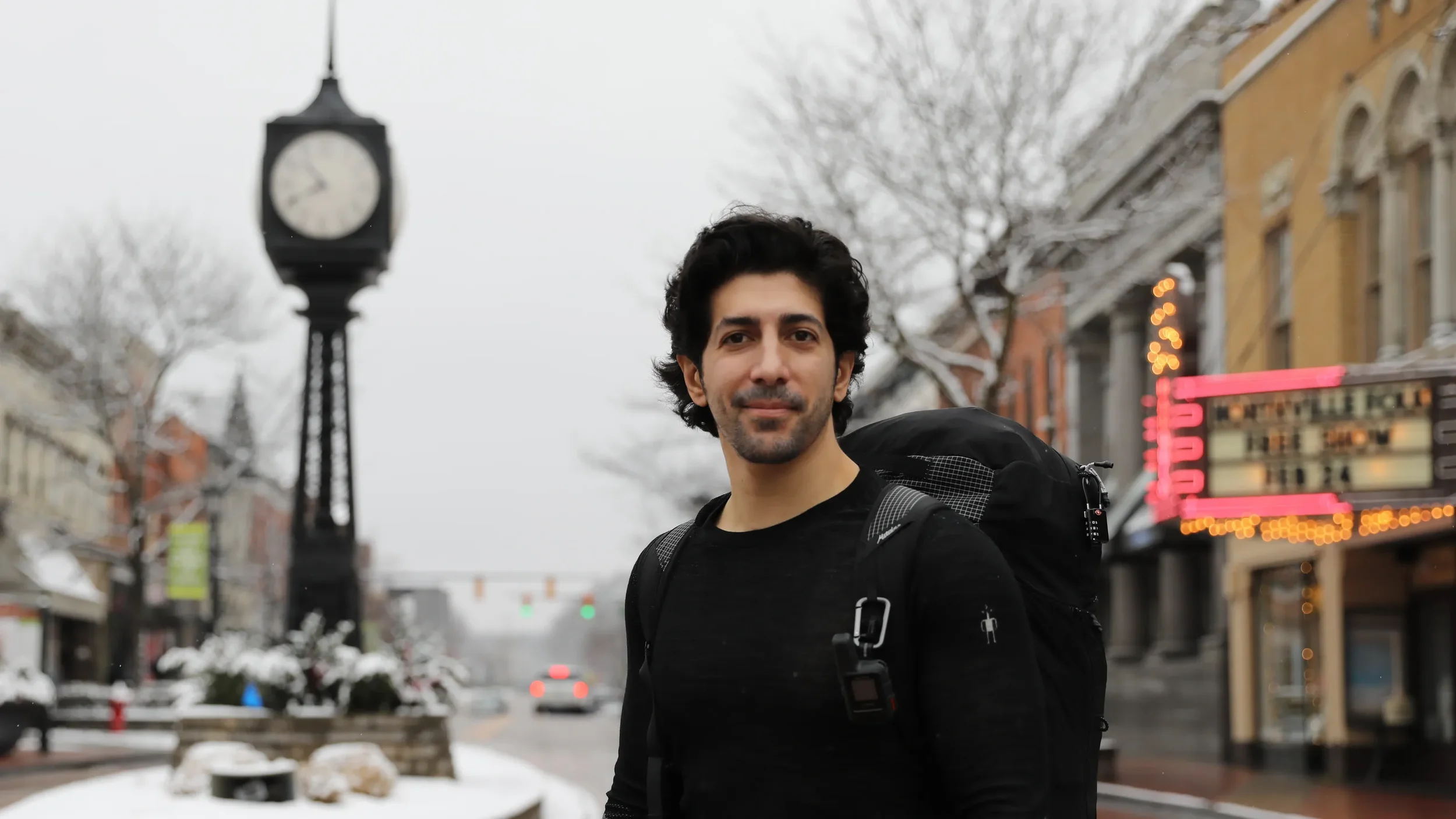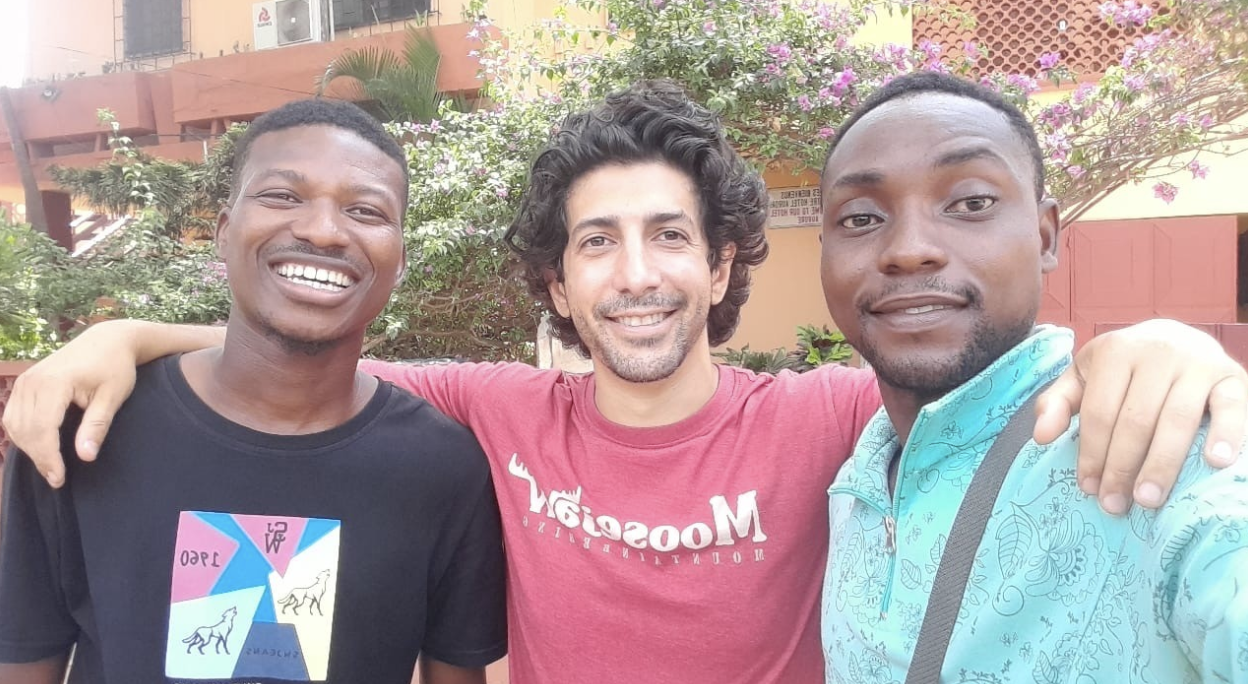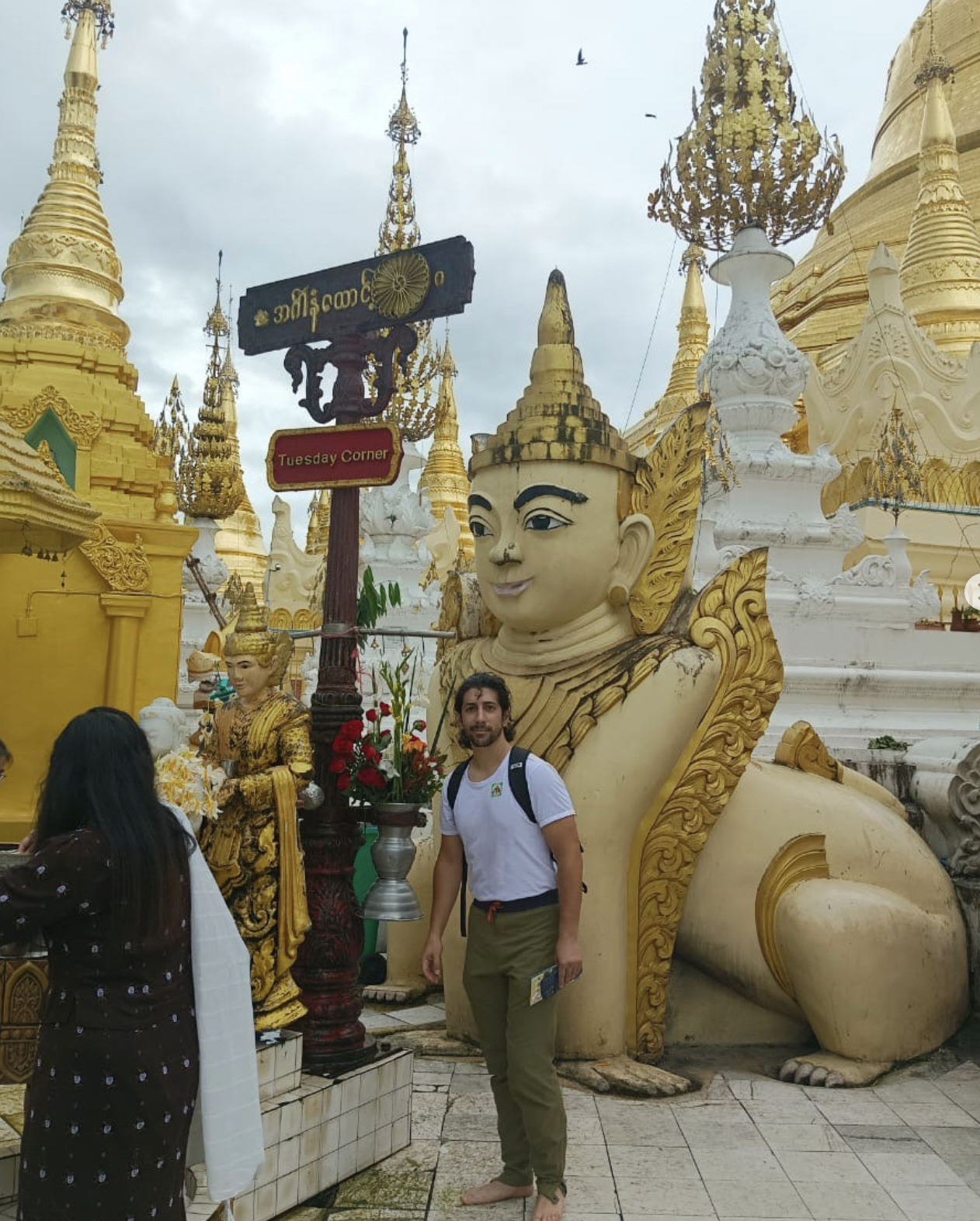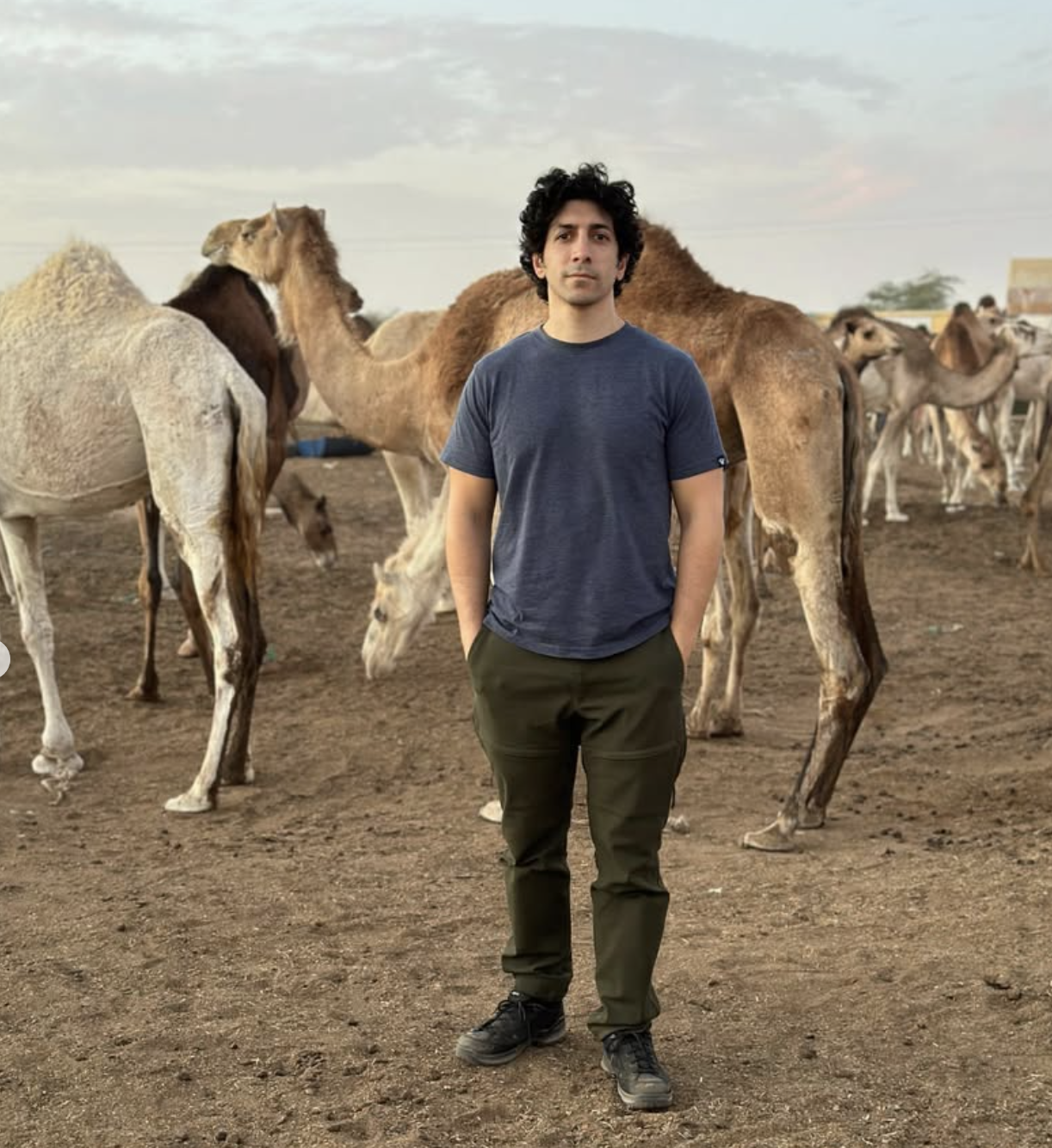Free to Fail
Written by: Michael Angelo Zervos, Film Producer
Just 2 months ago, I completed a 499 day journey to visit 195 countries and in doing so, broke the Guinness World Record for being the fastest human to visit every sovereign nation on our planet.
Since finishing, many have come up to me to commend my bravery, to praise me for doing something they only wish they could’ve done. While nodding and thanking them for their congratulations, I reflected with some amusement on an alternative reality where I failed. That same bravery would now be considered a special kind of idiocy - the kind we’d read while drinking our morning coffee and scrolling the web. You know the type: some famous TikToker filming a dance trend in Iran or a backpacker bringing drugs into China. We’d raise our eyebrows with feigned surprise and mutter “idiot” under our breath and move on.
Though at times I was a hair’s breadth away from that alternative fate, I managed to complete this journey with only the occasional detainment by corrupt cops, a night in jail, an encounter with mob justice, and a deportation. However, my failures in my life have taught me to accept the outcome of failure and made me fearless in the potential of not meeting my lofty goals. Truth be told, I attribute my success this time to the fact that I failed so many times before.
It would’ve been impossible to have visited countries as far-flung as Tuvalu, as isolated as North Korea, and as war-torn as Palestine without bringing something back with me. Instead of typical souvenirs like t-shirts or magnets, I opted for something less tangible, yet infinitely more impactful. I’m a professional storyteller, having worked for the last 13 years as a director in film and television. Naturally then, I returned with stories - thousands of them.
Since I couldn’t parade down the streets of Tripoli or Mogadishu with an entire film crew, I armed myself with only a cell phone and one deceptively simple question: “What is the happiest moment of your life?” Whether it be an hour, a day, month, or year of someone’s life, my goal was to uncover a story about a single moment that stands above all, in the lives of others. Never did I define happiness, but instead, I allowed each subject to embed their own philosophy of happiness within their responses.
The answers were as varied as the human experience itself. Sometimes the answers were funny, other times thoughtful. Tragic. Dramatic. Subdued. Confusing. Erotic (yes, really!). Relatable. Predictable. Some truly blew my mind.
One woman from Kyrgyzstan said her happiest moment was when she lost 80kg of dead weight, i.e. her ex-husband. Another in Lesotho got into university the very same day her father suddenly dropped dead. A boy in Jordan wrote a letter to NASA and got a reply. A girl in Moldova had a surprise COVID birthday party. A Marshallese recalled bedtime stories with her grandmother. An elderly Tunisian regaled me with times of his rakish youth.
The more responses I collected, the more I realized the sheer variety of stories was a deep reflection of our equally voluminous wants and needs as humans. Right in front of me, hiding one layer underneath my question, was a fundamental defense of a market-based economy. If the pursuit of the happiness experience, however it was defined by others, was motivation for action, those actions were then enabled or enriched by an environment of maximal freedom. That’s because such limitless paths could never be anticipated and managed top-down. Only by an equally flexible and diverse system of fulfillment could such demands be met. And it wasn’t about getting more stuff for people who already had a lot of stuff.
It was about freeing people to fail.
Happiness is our most elusive emotion, an assumption embedded in the phrase “pursuit of happiness”. Ironically, happiness isn’t hard to achieve, gained by the most trivial things, as well as the most monumental. It’s just hard to keep. So many anecdotes I’ve collected about long-lasting happiness are rooted in the fertile soils of purpose. Those people who have expressed a strong purpose in life have continuously found reasons to appreciate all seasons of their lives and as one man in the Dominican Republic put it, “enjoy happiness and sadness equally”. I might actually call this joy, but that’s a subject for a different time.
The point is that while someone can regularly stumble into happiness, purpose comes from an extensive search wrought with many, many failures. To understand this underappreciated consequence of a market-based system, one only looks at the most insidious consequence of closed systems and the crushing of human potential.
Across the world I’d encounter frustratingly talented people who would be shackled to ruinous labor from here to the day they died. People like Zakariah, who once had a purpose helping entrepreneurs establish companies in Kabul but since the Taliban’s return to power, he now huffs soldered metal in a dim alleyway, putting cell phones back together. Or Julie, a once dutifully-employed Burmese teacher, who now lives in a fear-induced paralysis brought about by her own government. It broke my heart to leave the company of people like this because, as we said our goodbyes and I turned to go, their eyes pleaded for me to spirit them away to a place they might be more productive, to use their abilities to make themselves and others around them better off. They were not free to fail, they were destined for it.
As advocates for free markets, our hardest battles in developed nations are not often won by rational discourse. No one knows this better than storytellers, who observe the desperate economist collect numbers and figures only to be ignored by the crowd’s growing discontent. It’s hard to see the totality of the effects of a developed free market because of how diffused its benefits can be: try telling the fish of the importance of the water in which it’s swimming.
Markets are an extension of our limitless capacity to dream, an imperfect consequence of limited knowledge, scarce resources, and shifting demands. It harnesses the very best of our tendencies, exploits the very worst of them, and harmonizes them in a way that no other conceivable system has done to this day. Of anything else, they offer the most direct path to elevated living conditions of any system, but the free exchange of goods and services does not de facto give purpose to others. Instead it lays the groundwork to discover it by relieving us of the natural state of poverty, building infrastructure for exploration, and the capacity to choose. The freedom to choose means freedom to fail.
When markets are being attacked by both the American right and left, to rely on assertions of the superiority of capitalism to provide goods and services without an acknowledgement of the underlying consequences of the freedoms is the equivalent of rolling over. So while people in the developed world may not be moved by the abundance of soap brands on the shelf, the pursuit of purpose may speak to people everywhere.
In pursuit of purpose, we may rise high into the heavens only to be struck down in hubris in a spectacular blaze of glory. Our story may generate memes and mockery, but most of the rest of the world would gladly trade the possibility of this fate, than to slowly wither on the vine and die. This is something that I continue to remind myself when I recall my past failures and entertain future ones, how fortunate I am to be free to fail at all in service of a purpose.
My book Happiest, a collection of the stories I’ve personally curated from every country in the world, will be due Q3 of next year from Penguin Random House.




